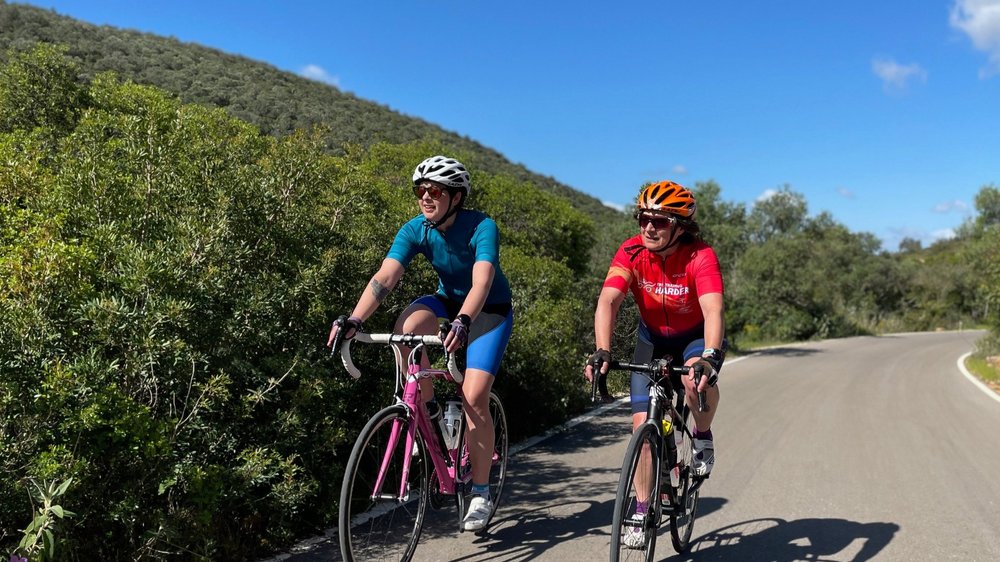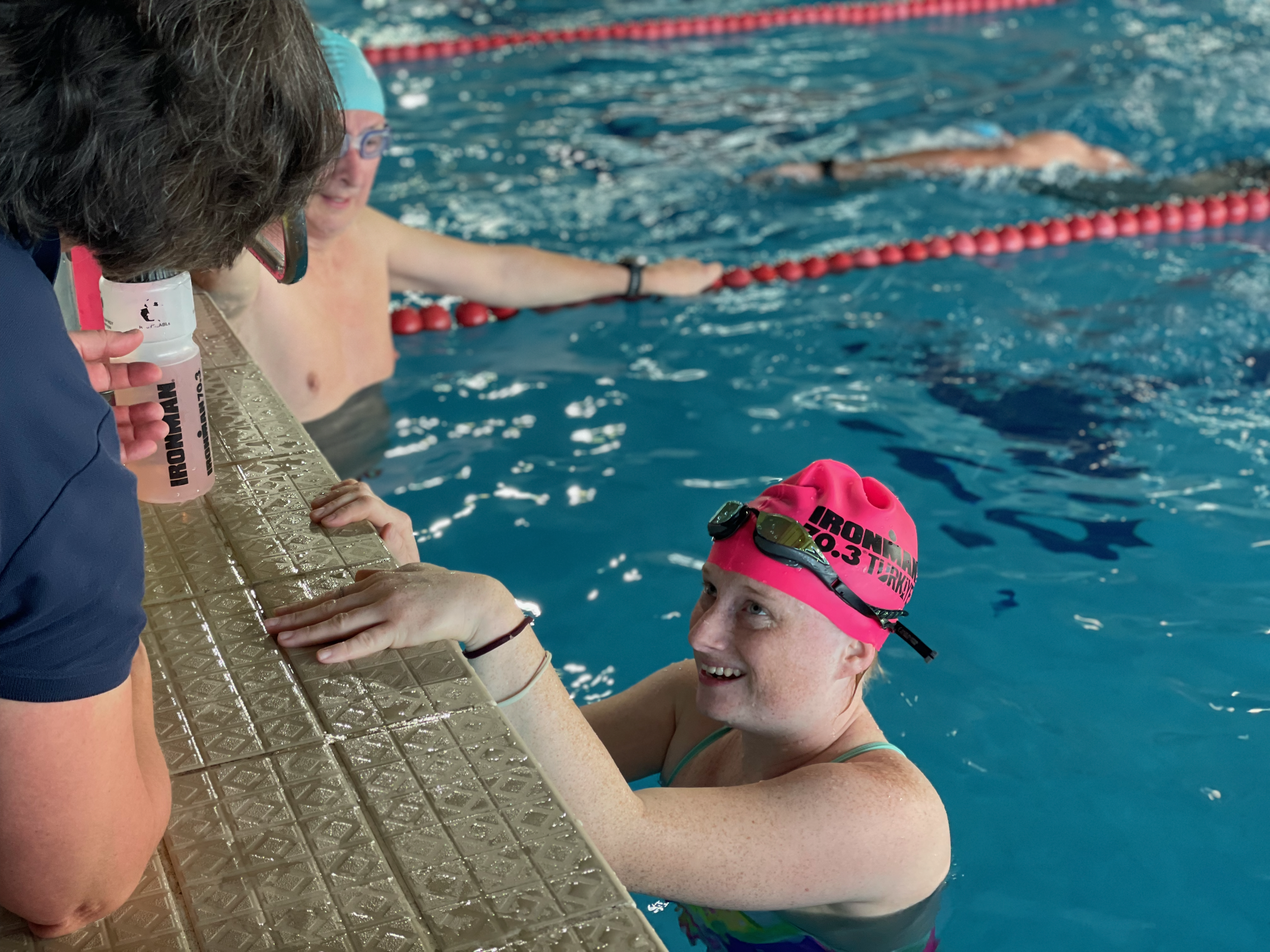Overcoming Barriers: How Female Athletes Build Confidence in the Pool, on the Bike, and at the Track?
With the increased participation of women in triathlons, there has been a corresponding rise in the number of female athletes training across the three disciplines. For training to be practical, it needs to be consistent, which means showing up regularly. This can be difficult in terms of finding the time, but lack of confidence is also holding women back from participating as fully as they could. In this blog, Coach Denise examines strategies to build confidence and continue training.
One of the great things about triathlon, and also one of its most challenging aspects, is that it is comprised of three distinct sports. While this may seem obvious, the requirement to train for three different activities can present numerous challenges. After all, one definition of a triathlete is: someone who doesn’t realise that one sport is hard enough.
Finding the time to train for all three disciplines, plus including some strength and conditioning work, is hard enough. Add to that a lack of confidence, which many women experience, and then completing training can feel impossible. Entering a gym to lift weights can feel daunting, especially if there are many men working out with heavy weights. Running or cycling at night, alone and in the dark, can be pretty scary. Getting into the swimming pool can be intimidating, especially for those of us who lack confidence when wearing a swimsuit. In addition, trying to find the right slot between the super slow, heads-out breaststrokers and the sprinting front crawl swimmers in the fast lane can be a whole new challenge.
In addition to all this, many women struggle with believing they are good enough to train with others. Since most triathletes come from a background in one sport, they are, by definition, relative beginners in the other two. However, it can be challenging to transition from being very good at, or experienced in, a sport to becoming more of a novice in a different one. This can contribute to the feeling of not being good enough to join in with running track sessions, swimming sessions, or cycle rides.
It is essential to recognise that foundational fitness developed in an athlete’s primary sport, such as cardiovascular endurance and the habit of disciplined training, provides a solid base for pursuing additional disciplines. Additionally, the knowledge that consistency is key supports the development of a strong base from which to build additional sport training.
There are several practical approaches that can help overcome some of these barriers to regular training. One of the best ways is to find a friend to join you in attending new sessions, for mutual support and motivation.
Heading to the local run club track session can seem very intimidating for non-runners, but most groups have a wide range of abilities. Taking that first step and trying it out may reveal that you are actually faster than you think. Additionally, speed work on the track will pay dividends on race day.
“I replied, “Girls can do anything they want to.”
Other, less formal options for run training can include going along to your local Parkrun. After a couple of visits, you will start to see others you recognise and begin making friends. Most ParkRuns also have a local café where people gather for coffee after the run, fostering some social connections and meeting more local runners.
In Scotland, Jog Scotland groups offer support for various ability levels, and many cities and towns host similar running groups. Local athletic retailers, coffee shops, and gyms also frequently organise regular group runs.
Cycling on the road can present difficulties with dark or busy roads and fast traffic. In many areas, there are local cycle circuits where you can turn up and pay to ride around on a smooth, traffic-free circuit. This can be an excellent environment for refining technique, developing bike-handling skills, and performing speed work. These venues often host group sessions, offering opportunities to connect with other cyclists and form groups for road rides.
Swimming can be the trickiest discipline to find pals to train with. Many local pools offer adult swim improvement sessions, which can be a good way to both work on swim speed and meet other swimmers.
Since the sport we are training for is triathlon, it would make sense to look for a local triathlon club. It can seem like many of these clubs are full of super-fast, super-experienced triathletes, but in practice, they comprise a mix of abilities and experience. Many people join a club to share their own knowledge and mentor those new to the sport. Taking that first step through the door is the hardest part, but once it’s done, it can open up a whole world of opportunity.
Along with finding a physical community to train with, there is also value in being part of a virtual community. Support can still be seen through being part of a virtual squad, with online-based communications to share experiences, get information and provide mutual motivation.
Finally, it is essential to remember that you don’t know who you are inspiring. I remember riding out with a group on my bike and passing a young girl who said, “I didn’t know girls could do that!” I replied, “Girls can do anything they want to.”

Denise has been coaching triathletes since 2019 as a coach at her local triathlon club in West Lothian. Between 2019 and 2022, Denise was the Head coach in the club, working with a team of coaches to support and develop triathletes with a wide range of capabilities, completing her BTF Triathlon Level 2 coaching qualification in 2021.
Denise joined Tri Training Harder as a coach in 2021, building on the qualifications through the experience and knowledge passed on by the coaching team.
In 2019 Denise set up and continues to run her own Jog Scotland running group, a mixed ability group of runners who meet weekly. This delivers on her passion for helping people to do much more than they think they can.
Visit Denise's
Coach profile
We’re here to help
Tri Training Harder are one of the leading Triathlon coaching providers in the UK, using our wealth of experience to unite scientific and technological research with already well-established and successful best practices, to create a formula for triathlon and endurance coaching that works.
The result is an honest, dynamic, yet simple new way of constructing an athlete’s training to allow them to reach their potential.
If you’re planning your next season, just starting out in the sport or are looking for extra guidance at the very top end of the field, we are here to help, and our coaches would be delighted to hear from you. You can contact us via the website, and one of the team will be in touch.



